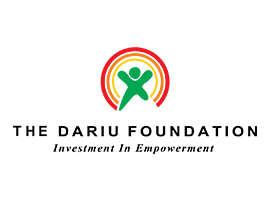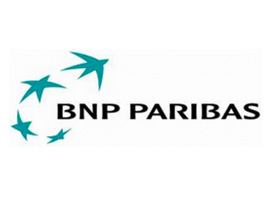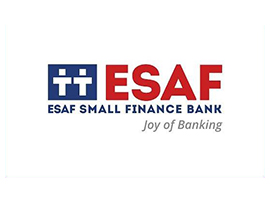Corporate Governance Policy & Code
Home / Corporate Governance Policy & Code
STEP is a non-profit organization registered under section 25 of the company Act 1956. SAMPURNA TRAINING AND ENTREPRENEURSHIP PROGRAMME, “STEP” is a social microfinance organization located at 222/18, MC Garden Road, Kolkata 700030, West Bengal. STEP was incorporated as a non-profit company in September 2010, and registered under section 25 of The Company Act 1956.
STEP provides micro credit services to the vulnerable family’s livings in slums of Kolkata and Howrah. Since the beginning STEP has incorporated various socio-economic services like business training, family counselling, health and social meetings vocational training etc.
Registration Status
Mission - To provide low income and disadvantage families with sustainable adopted and innovative financial, business development, access to employment and social services, building self-reliance and capacity to realize their wishes.
Vision - A flourishing society where vulnerable families are empowered to improve and strengthen their standard of living.
24. WE Shall follow company approved process to raise clients awareness of the options, choices, and responsibilities -vis financial products and services available. 25. WE Shall inform all new clients about the organization policies and procedures. 26. WE Shall inform clients about the existence and purpose of feedback mechanisms and how to access them.
COMPANY'S PHILOSOPHY ON CORPORATE GOVERNANCE
Sampurna Training and Entrepreneurship Program (STEP) recognizes its role as a corporate citizen and endeavors to adopt the best practices and the highest standards of Corporate Governance through transparency in business ethics, accountability to its customers, government and others. The Company's activities are carried out in accordance with good corporate practices and the Company is constantly striving to better them and adopt the best practices.
In pursuing its Mission of “To provide low income and disadvantage families with sustainable adopted and innovative financial, business development, access to employment and social services, building self reliance and capacity to realize their wishes”, STEP has been balancing its dual objectives of “social” and financial goals, since its inception.
BOARD OF DIRECTORS
The Board of Directors along with its Committees shall provide leadership and guidance to the Company’s management and direct, supervise and control the performance of the Company.
As per the Company’s Articles of Association, the Board’s strength is required to be a minimum of two directors and a maximum of fifteen directors and none of the directors are liable to retire by rotation. The Board shall meet a minimum of four (4) times in a year, at least once in each quarter [in such a manner that not more than one hundred and twenty days shall intervene between two consecutive meetings of the Board].
The Board has a vital role to play in the matters relating to policy formulation, implementation and strategic issues which are crucial for the long-term development of the organization.
In Compliance with Section 165 of the Companies Act, 2013 (‘the Act’), a director shall not hold the office of a director in more than 20 companies. Provided that the maximum number of public companies in which a person can be appointed as a director shall not exceed 10.
The Board shall periodically review Compliance Reports of all laws applicable to the Company prepared by the Company as well as steps taken by the Company to rectify instances of noncompliance The current Board of STEP comprises of 4 (four) directors, including 2 (two) independent directors.
DUTIES AND RESPONSIBILITES OF THE BOARD OF DIRECTORS
Governance
Strategy
Policies
Policies for remuneration and overall guidelines on incentive pay
Audit
Finance
Operations
Compliance
COMMITTEES OF THE BOARD
To focus effectively on the issues and ensure expedient resolution of diverse matters, the Board constitutes a set of Committees with specific terms of reference / scope. The Committees shall operate as empowered agents of the Board as per their Charter / terms of reference.
While the RBI Guidelines mentioned earlier require the setting up of an Audit Committee, Asset Liability Committee, Risk Management Committee and Nominations Committee, the Companies Act, 2013 requires the Company to constitute an Audit Committee, Nomination and Remuneration Committee and Corporate Social Responsibility Committee.
In compliance with the applicable provisions of the Act, RBI guidelines on Corporate Governance and in order to meet business exigencies, the Company has constituted Board committees.
The terms of reference, roles and responsibilities of the aforesaid Committees will be further aligned based on the changes in the regulations and business requirements with the approval of Board. STEP complies with the above requirements of committee constitution and have the following committees of the Board:
The Company has in place the Audit, Compliance & Corporate Governance Committee in accordance with the provisions of Companies Act, 2013 and RBI guidelines on Corporate Governance.
The Audit Committee shall meet at least two times in a year.
The Quorum of the meeting shall be the minimum two members of which the Independent Director shall attend.
Reference Terms for the Committee
The Audit Committee shall act in accordance with the terms of reference specified in writing by the Board which shall inter alia, include
The Company has in place the Governance, Remuneration and Nomination Committee in accordance With the provisions of Section 178 of the Companies Act, 2013 and the rules made there under and in Compliance with RBI guidelines on Corporate Governance.
Chairman of the Committee shall be an Independent Director.
In the absence of the Chairman, the members of the Committee present at the meeting shall choose one amongst them to act as Chairman.
The Committee shall consist of a minimum 2 non-executive directors, majority of them being independent.
The Committee shall meet as and when necessary.
The quorum shall be at least two Directors.
Reference Terms for the Committee
The Company has in place the Risk & Fraud Control and Monitoring Committee in accordance with RBI guidelines on Corporate Governance for the purpose of monitoring the risk and to make suitable strategies to control.
The Committee consists of such members as may be defined by the Board
The Company Secretary of the Company shall act as a Secretary to this Committee.
The Committee shall meet once in a quarter and also as and when necessary to review and monitor the risk associated with business of the Company.
The quorum shall be at least two members.
Reference Terms for the Committee
The Company has in place the Asset Liability Management & Credit Policy Committee in accordance with RBI guidelines. The Committee’s primary goal is to evaluate, monitor and approve practices relating to risk due to imbalances in the capital structure.
The Committee comprises of the members as determined by the Board.
The Company Secretary of the Company acts as a Secretary to this Committee as well.
The Committee shall meet once in a quarter and also as and when necessary to review and monitor the risk associated with business of the Company. The quorum shall be at least two members.
Reference Terms for the Committee
The Board has constituted the CSR Committee in accordance with the provisions of Section 135 of the Companies Act, 2013 and the rules made there under and to oversee social programs undertaken by the Company and monitor economic and social impact on beneficiary.
The Committee shall consist of three or more directors, out of which at least one director shall be an Independent Director.
The Company Secretary of the Company shall act as the Secretary to the Committee.
The Committee shall meet once as and when required
The quorum shall be at least two Directors.
Reference Terms for the Committee
Others committee:
ADVISORY COMMITTEES:
Since the begging, STEP is inspired and supported by Entrepreneurs du Monde (EDM), a French NGO specialised on social microfinance. EDM is led by a team of microfinance professional from various sectors like finance, SPM, internal audit etc. STEP received active support through regular visits of EdM’s technical expert and providing senior staff for foreign exposure.
Reference Terms for the Committee
CORE COMMITTEES
Core committee is formed with the experienced staffs usually the head of the departments of the organization. At present, 7 members constitute the core committee. The core committee is headed by CEO.
Reference Terms for the Committee
COORDINATION COMMITTEES
Coordination committee is constituted by coordinator and branch managers. Coordination committee is headed by coordinator and meet every week.
Reference Terms for the Committee
Appointment, Rotation & Succession Policy
Purpose:
This policy applies to the Board of Directors of STEP.
The purpose of the policy is to provide a process by which the board reviews whether to support for re-election directors who are required to retire by “rotation” each year, but who wish to stand for re-election.
The review process will occur annually and provides an opportunity for the Board to reassess not only the contributions of retiring directors, but also the blend of qualifications, experience and knowledge represented on the board, and to plan board succession accordingly.
Rotation Policy:
The Nomination Committee will not automatically support for re election a Director who is required to retire by virtue of Article 13 of the Article of Association and who wishes to stand for re-election.
In that circumstance, the Nomination Committee will consider whether to support the retiring director’s re-election and in doing so will consider the following:
Only after considering those matters will the Nomination Committee determine whether to nominate the retiring Director for re-election and to recommend that nomination to Annual Meeting of the Members.
Director’s Appointment Process:
Time to time, based on a recommendation from the Nomination Committee the Board of Directors shall discuss and make an assessment of the relevant competencies of the Board of Directors.
As part of these discussions the Board of Directors shall assess whether there are areas in which the competencies and knowledge of the Board of Directors and its members should be updated and whether it is composed in such a way that it can attend to its board responsibilities, including taking care of its overall and strategic tasks.
The Board of Directors shall describe the competences it should hold to best perform its tasks.
Potential board members may be nominated or submit an application and the nomination or application will be accompanied by a detailed resume. All potential members will be interviewed by a minimum of two Board members and will, if requested, supply references before being introduced to the Board for appointment.
Prospective candidates may be invited to attend a Board meeting prior to selection to assist in the assessment process.
Board Member Criteria. The Board will ensure that any individual elected to the Board demonstrates the following essential characteristics:
The Board of Directors may host up to seven members. Members can propose to invite guests whose expertise could benefit STEP.
The Board of Directors shall hold at least 4 meetings including one strategy meeting a year (according to an annual meeting and work schedule determined in advance of each financial year). The Chairman shall furthermore convene meetings of the Board of Directors when necessary or when requested by a member of the Board of Directors.
The meetings of the Board of Directors shall be held at the registered offices of STEP or at another venue designated by the Chairman.
Requirements of Members
Meeting Frequency
Additional meetings can be decided in case of need.
Information and Reporting
Quorum Requirements
POLICIES ADOPTED BY THE COMPANY
The following policies have been framed and adopted by the Company:-
Number Of Branches
Active Borrowers
Portfolio Outstanding ( Cr )
Repayment Rate

















